What is inflammation?
Let's get one thing straight from the get-go: inflammation is not our enemy! In fact, like all imbalances and disease states, it is our body's attempt to restore homeostasis and repair damage. Our bodies are amazing! Their complex, interrelated mechanisms are all designed for one purpose: to achieve and maintain a state of balanced, high level wellness. When things seem like they are 'going wrong' with our health, it's not that our body is acting inappropriately, making mistakes or trying to take itself down (why would it do that?) - it is actually trying its best to restore equilibrium.
So, in this context, what is inflammation? Inflammation is a vital part of the body’s natural defence process - one of the first steps to enabling other key immune system players to fight pathogens and heal damage. It is characterised by pain, swelling, redness and heat.
So that's what inflammation looks and feels like, and what our body is trying to do by utilising it. How about the different forms it takes? Whilst adopting the same biological mechanisms, it can be broadly categorised into two types:
Potential health impacts of chronic inflammation
In clinical practice, I'm sometimes asked questions like "Am I inflamed?" and "Do I have inflammation"? By now you probably know that the answer is: "Yes, and we all do!" The issue is not its mere existence - in fact, it would be an issue if our body could NOT elicit an inflammatory response.
Inflammation is 'non-specific', meaning that it is a broad, innate response that operates without precision or refined targeting. Because of this, unresolved, long-term cases can inadvertently affect what would be otherwise healthy tissue.
This non-specific, persistent action can result in varied health impacts that differ dramatically in their severity and presentation. In a nutshell, long-term inflammation has the potential to negatively affect the structures and/or functions within every system in our body and features in a multitude of imbalanced states (what we term 'chronic illness').
To reiterate, it is very important to recognise that inflammation is not the cause of disease - it is not inflammation that is the core problem - it is our body's natural reaction to try to fix what it deems broken. It's trying to help us! However, it can end up being a little too enthusiastic in its attempts to offer aid.
This is why it is so important to seek professional advice and support that will help you get to the root cause of your body's imbalances, rather than simply mask the biological knock-on effects such as inflammation.
Holistic strategies to address inflammation
Our modern diets and lifestyles have unfortunately evolved into rather 'pro-inflammatory' practices of living - i.e. practices that knock our body out of balance and can encourage chronic inflammatory responses. There are, therefore, actions that we can take to maintain healthy inflammatory processes in our body through promoting homeostasis.
Note that the goal is not to 'reduce', 'decrease', 'boost' or 'increase' levels of anything in our body - it should always be to regulate and moderate the body's natural processes at a core level. It is vital to identify and address the upstream issue that the body is trying to resolve with inflammation. Intrinsic Nutrition is here to support you to develop and sustain habits that achieve this goal.
Lifestyle practices to encourage balanced inflammatory processes
Depending on your needs, we may focus on the following lifestyle habits.
Identifying and creating a plan to eliminate any specific inflammatory triggers relevant to you (e.g. food sensitivities, respiratory aggravators, toxins).
Talking through the best ways for you to adopt healthy stress management strategies.
Discussing your sleep practices to ensure you are getting adequate and good quality sleep.
Addressing any challenges you have in maintaining a regime of regular, moderate physical activity.
Supporting you to reach and/or maintain a healthy body weight.
Working through dietary strategies to address dietary patterns that are high in pro-inflammatory foods (e.g. highly processed foods, refined carbohydrates, dairy, gluten, sugar, trans/hydrogenated fats).
Supporting you to achieve any goals related to avoiding smoking, caffeine and alcohol.
Key nutrients that modulate inflammation
Below are some of the primary nutrients and foods that we might look at in cases of imbalances where chronically elevated inflammation features. Intrinsic Nutrition uses a combination of tools to assess potential dietary deficits and nutritional imbalances according to a client's specific case in order to ascertain the most effective strategies for the individual. As for all diets that promote balance, this list features inherently health-promoting wholefoods, however is designed to be considered as part of an overall nourishing eating pattern.
High quality protein
Various essential and non-essential amino acids have differing anti-inflammatory actions. As a broad category they are associated with a reduction of inflammatory biomarkers and can regulate or inhibit the inflammatory processes within our bodies. It may be useful to assess and address your dietary inclusion of foods such as unprocessed or minimally processed lean meat (organic or at least hormone-/antibiotic-free), seafood/fish, eggs and legumes.
Dietary fibres
Dietary fibres play a key role in reducing the systemic inflammation that can occur as a result of compromised gut health - think 'leaky gut'. Different dietary fibres play different roles, including reducing stagnation of food in the gut and acting as food for 'good' gut bacteria. The right individual balance of different sources of fibre including foods such as wholegrains, legumes and various types of fresh fruits and vegetables may be useful to address inflammation gone rogue.
Polyphenols (esp. Bioflavanoids/Flavonoids)
A bioflavonoid may sound like a rapper from the 90s, but they are actually nutrients that inhibit various inflammatory mediators in our bodies. Different flavonoids undertake different actions, so as a group of nutrients they can be a potent component of our inflammation fighting toolkit. Foods such as fresh vegetables and fruit (especially berries and citrus fruits), green and rooibos tea, and soybeans are good sources.
Carotenoids
Not to be confused with a member of Bioflavonoid's crew, carotenoids are antioxidant nutrients, often acting as pigments that produce red, yellow and orange colours in plants, fruits and vegetables (the clue is in the name...correct spelling notwithstanding!) They interrupt the secretion of inflammatory mediators in the body, thus may be helpful in addressing chronic inflammation. Not surprisingly, they can be found in high amounts in orange fruits and vegetables as well as tomatoes and watermelon. Some green vegetables, including lettuce, spinach and broccoli are also great sources.
Omega-3 fatty acids
One of the key anti-inflammatory components of a healthy diet, omega-3 fatty acids are associated with lower concentrations of many biomarkers of inflammation. This is a result of their role in inhibiting the synthesis of key inflammatory mediators and actively decreasing the volume of other fatty acids that are more likely to promote inflammation in our bodies. Balancing your fat intake to modulate inflammation may involve dietary favouring of foods such as fatty fish, flaxseeds, walnuts and chia seeds or a good quality fish oil supplement.
Sources
Hechtman, L. (2012). Clinical Naturopathic Medicine. Chatswood: Elsevier Australia
Sherwood, L. (2013). Human Physiology: From Cells to Systems (8th ed.). Belmont: Brooks/Cole
© Sharon Jenner 2023
DISCLAIMER
Some of the information we provide on our website may be information related to health but it's not meant to be health "advice". We provide this information for your general use only. While we try to provide accurate information, it may be historical, incomplete information or based on opinions that aren't widely held. Your personal situation has not been considered when providing the information, so any reliance on this information is at your sole risk. We recommend seeking independent professional advice before relying on the information we provide.



